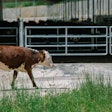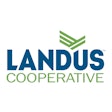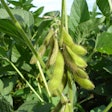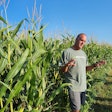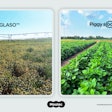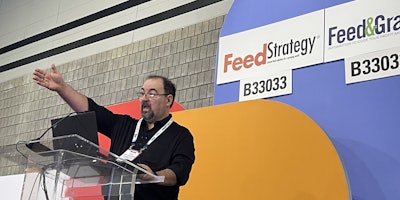
The International Organization for Standardization (ISO) has created Technical Committee (TC) 347, co-led by Andres Ferreyra, industry data standards & collaborations lead for Syngenta, to develop new standards for data exchange and interoperability across the agricultural food industry.
Ferreyra spoke about the committee’s objectives and encouraged feed industry stakeholders to get involved at the 2024 International Production & Processing Expo (IPPE) TECHTalk, Data: Creating value at scale for the agrifood industry, on January 31 in Atlanta.
“My goal is to enable frictionless data sharing and processing while also protecting the rights of the originators and owners of the data,” Ferreyra said. “It’s important to always think about data ethics by design, but ultimately, we're trying to enable scale and data exchange across all local, regional and global value chains.”
Technical Committee 347 will hold its first meeting in April with representatives from 39 different countries, in which they will outline the current challenges that agricultural operations face with data interoperability, and lay out a strategic business plan to address them.
“Data exchange is complex for the smallest of the small growers to their biggest counterparts,” Ferreyra said. “The smaller the producer, the more vulnerable they are — the less access they have to inputs, credit risk management instruments and so forth. In the past, many of these decisions were made based on what your parents did, adapting to what the neighbors were doing, but increasingly we must start making decisions based on data because factors are changing too fast to do otherwise.”
Ferreyra illustrated how data inputs from manufacturers, distributors and retailers from the field all the way to the consumers’ dinner plate contain critical information and a network of actors. But small producers have difficulty engaging with these data exchanges, even though they produce about half of the world's food.
“There are regulators, equipment manufacturers, test labs and other sources of data all exchanging information, and this is very valuable as a way of supporting their processes,” he said.
Ferreyra said the 21st Century demands that we scale up these data exchanges to support not only producing food, but producing it in a way that conforms to standard best practices and best scientific principles.
“Standards are made when pain points are identified, and people say, ‘Let's just solve this,’” Ferreyra said. “There are an infinite number of examples where data standards can help. The idea behind all this is to help you be more profitable, more sustainable and more compliant with the regulations that can get you in trouble if you aren't.”
Industry stakeholders are welcome to join their country’s mirror technical committees and share their position on matters related to data transfer and interoperability. The American Society of Agricultural and Biological Engineers (ASABE) manages the US mirror committee for TC-347.
Ferreyra encouraged attendees to get involved with the data standards development process through professional associations, like American Feed Industry Association (AFIA), or the companies they work for.
“The industry needs to know about these standards, so we've started working with our communications team to make them more accessible,” Ferreyra said. “But also get involved directly. Your experiences, knowledge and perspective are important for guiding us on what processes in your segment of the industry give you trouble and where the data exchanges are important.”








